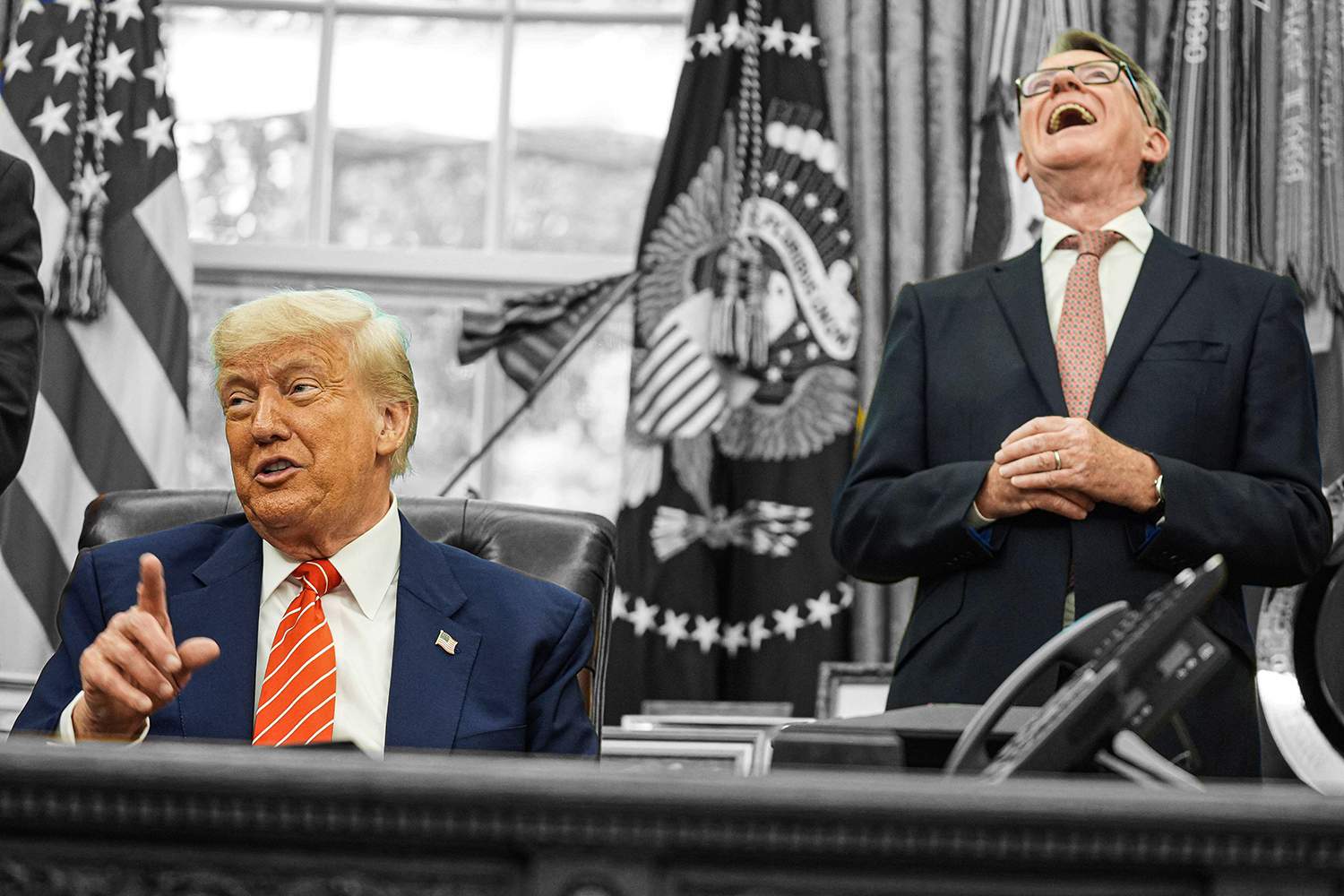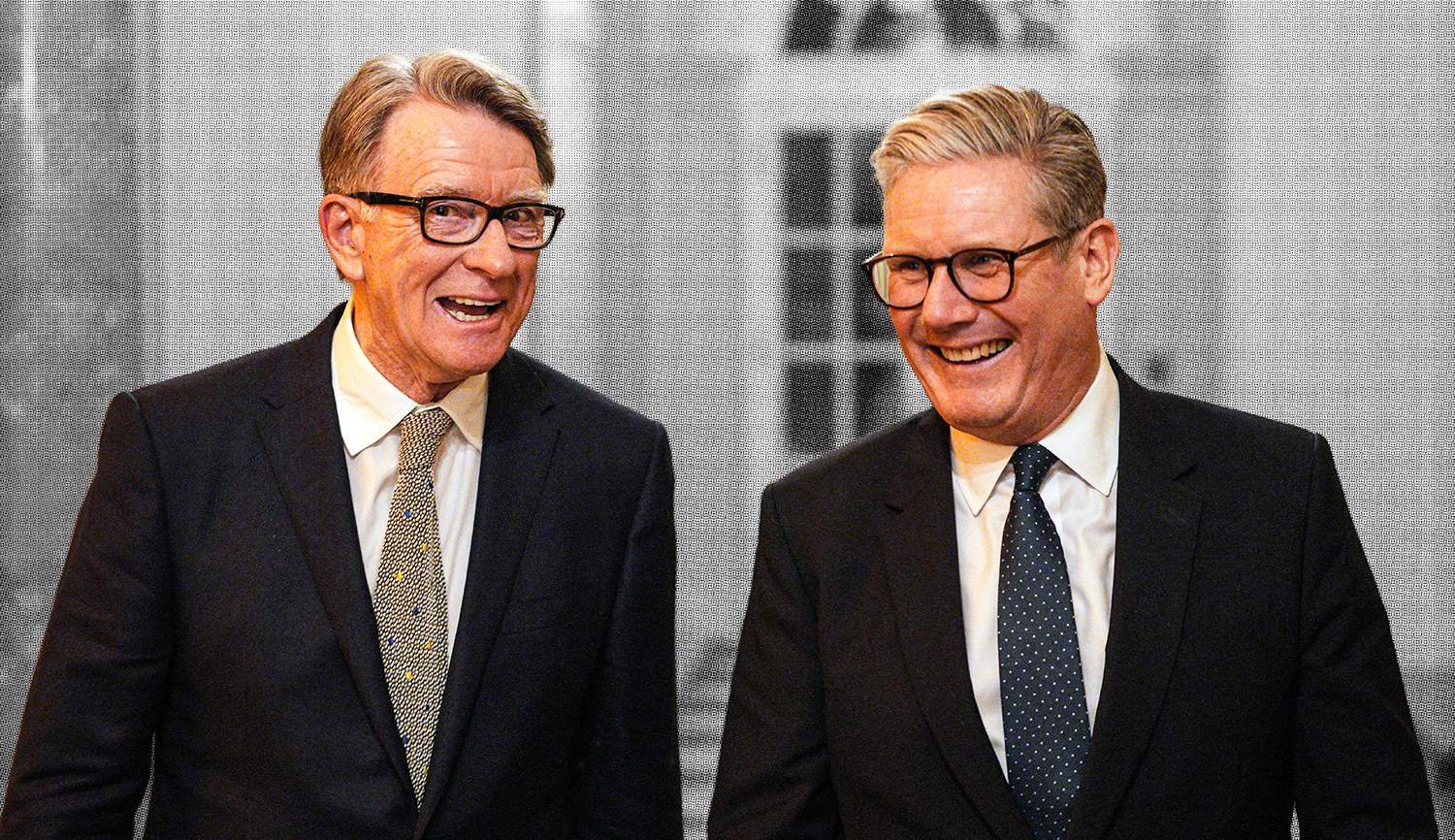
Read our Monthly Magazine
And support our mission to provide fearless stories about and outside the media system
It’s with a horrible sense of déjà vu that I read the news about Peter Mandelson’s sacking from his position as British Ambassador to Washington. It was only six years ago that another British Ambassador, Sir Kim (now Lord) Darroch, was also obliged to leave this post following the leaking of controversial emails he had written. As in Darroch’s case, which occurred when I was still a British diplomat, working for him at the embassy, I imagine embassy staff are again left reeling by the sudden departure of their head of mission. The timing is also unfortunate, coming on the eve of Donald Trump’s second state visit to the UK, next week.
However, the circumstances between the two cases could not be more different. Sir Kim was ousted after highly unflattering emails he had written about the chaotic nature of Trump’s first administration were illegally leaked to the British press. The reports were classified. Sir Kim was entirely legitimately and correctly doing his job, in giving his honest assessment to the British government, about what was going on in US politics. He had every right to expect that his confidential messages would be treated securely. If Ambassadors fear that their communications will be leaked, they will never put anything useful down in writing, but merely communicate utterly pointless bland nothings back to London.
Although the then Prime Minister, Theresa May, and her Foreign Secretary, Jeremy Hunt, told Darroch he still had their strong backing, he personally concluded he could not stay on in the role after the likely future Prime Minister, Boris Johnson, six times refused to back the Ambassador during a TV debate with Jeremy Hunt, with whom he was competing to succeed Theresa May. Without the support of either the current American leader, or likely British leader, he concluded he had no option but to resign. This news was received with dismay by staff across the Foreign Office, who agreed with Foreign Office Minister Alan Duncan’s subsequent assessment, that Johnson had “thrown Darroch under the bus.”
Darroch came out of the episode with his honour and integrity intact, and ultimately was rewarded by May for his self-sacrifice by being made a peer in the House of Lords.
Mandelson’s tenure at the embassy in Washington ends on a much more disgraceful note. What brought him down was not any foul play against him, but the revelation of his own foul dealings with the convicted sex offender, Jeffrey Epstein.
It is also clear from the language he used in his farewell message to embassy staff that, unlike Darroch, he did not decide to go of his own volition. Far from choosing to resign, and maintaining some last vestige of honour, he makes it clear that it was not his own choice to leave. As he wrote in his letter “I have no alternative to accepting the Prime Minister’s decision.”
The tawdry episode does not reflect well on either Mandelson himself, or the man responsible for his appointment, Prime Minister Keir Starmer. This is the case even if we take at face value No 10’s assurances that they were not aware of the extent of Mandelson’s friendship and support for Epstein over the years, including after the latter’s conviction.
Mandelson himself should have been more honest upfront about his association with Epstein. His personal ambition kept him quiet. Like Icarus, he flew too close to the sun, and ultimately crashed to the ground. He is now facing calls to resign his peerage as well. He has made many political comebacks in his time, but it is hard to see how he can ever recover from this.
As for Starmer, he should have heeded the warnings of many Labour MPs and advisors, and also, according to latest media reports, the security services, that Mandelson carried too much baggage to be a good choice as Ambassador. He also took too long to conclude that Mandelson had to go. His political judgement has been shown as severely wanting.
In both Darroch’s case, and now Mandelson’s, there is a competent deputy Ambassador in place who can step in to fill the void until a new Ambassador is appointed. I have no doubt that the designated interim Ambassador, James Roscoe, will manage the embassy team effectively in the interim.
But the damage to UK-US relations is still done.
ENJOYING THIS ARTICLE? HELP US TO PRODUCE MORE
Receive the monthly Byline Times newspaper and help to support fearless, independent journalism that breaks stories, shapes the agenda and holds power to account.
We’re not funded by a billionaire oligarch or an offshore hedge-fund. We rely on our readers to fund our journalism. If you like what we do, please subscribe.
Most immediately, it casts an uncomfortable shadow over the President’s state visit to the UK next week, because of the questions surrounding Trump’s own association with Epstein. Far from the state visit providing Trump with a welcome opportunity to escape US media coverage on this issue, it is likely to lead to even more speculation and probing – not least because he is being hosted by the father of Prince Andrew, whose fall from grace was caused by his own dealings with Epstein. The trifecta of Trump, Prince Andrew and Mandelson’s associations with Epstein are just going to add fuel to the fire.
Starmer will face awkward questions about how he squares his expressions of disgust about Mandelson with his embrace of Trump, whose history of sleaze seems even more sordid. The Epstein saga will forever hang over Starmer’s future dealings with Trump, who may in turn want to distance himself. There will be a lingering wariness on both sides.
In the short to medium term, it will complicate relations between the embassy and the White House, because the Trump administration does not operate according to the usual traditions and channels of diplomacy. As I have heard from people who have worked within this current administration, there is no systematic inter-agency process in place – where officials at more junior levels prepare the way for more senior level interactions, and messages are faithfully relayed up and down the chain of command, and across government departments. Everyone around Trump is afraid to make decisions without his personal blessing.
The embassy needs to be led by someone with the personality and stature to get access to, and forge a personal connection with, Trump himself. No Deputy Ambassador, no matter how skilled, is likely to achieve this.
And in the longer term, there’s a challenge for Starmer in who to choose as Mandelson’s successor. Ironically, I suspect a big reason Starmer was willing to overlook Mandelson’s checkered history was precisely because he thought he was the kind of person who would be able to establish a personal bond with Trump. Mandelson, with his own affinity for fame and fortune, his title, and his connections, would find plenty in common with Trump. Unlike more lofty European diplomats, he would not condescend to the US President, sneer at his associations, disapprove of his corrupt dealings, or laugh behind his back at his tawdry tastes. Mandelson would be willing to do what it took to build the connection.
And so it proved. During his time as Ambassador, Mandelson repeatedly flattered Trump, overlooked his deficiencies, and publicly defended his policies, all with the goal of securing Trump’s favour.
Mandelson’s appointment initially seemed like a clever gamble which was paying off. The UK secured an early trade deal with the US, on more favourable terms than many other Western nations. Starmer and Trump built a connection, which allowed Starmer to intercede privately, on issues such as Ukraine. The state visit was supposed to cement the relationship.
Now that this strategy has failed, what does Starmer do next? Does he appoint another in Mandelson’s mold, but with less baggage? Or does he play it safe, with a traditional, career diplomat, who might represent British interests more professionally, but with less focus on Trump himself?
It is, in fact, a metaphor for the challenge of dealing with the Trump administration as a whole. Should the British government continue to hold its nose, strain its own values and principles, and put all its eggs in the Trump/Republican basket? Or is it time to recognise there are advantages to playing it a bit cooler – not least, because UK-US relations have traditionally tried to be politically neutral, based more on enduring interests and institutions, than political parties and personalities.

